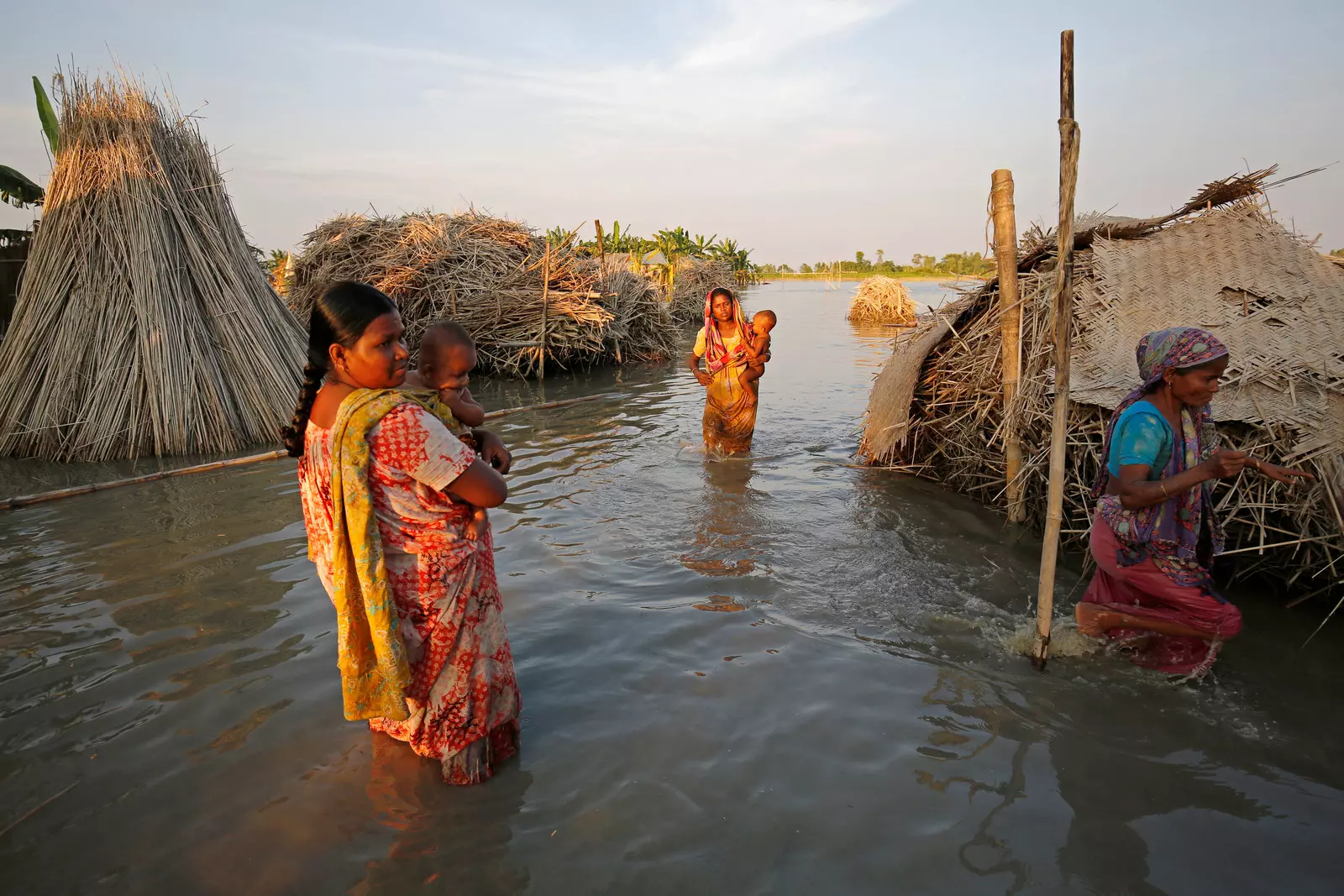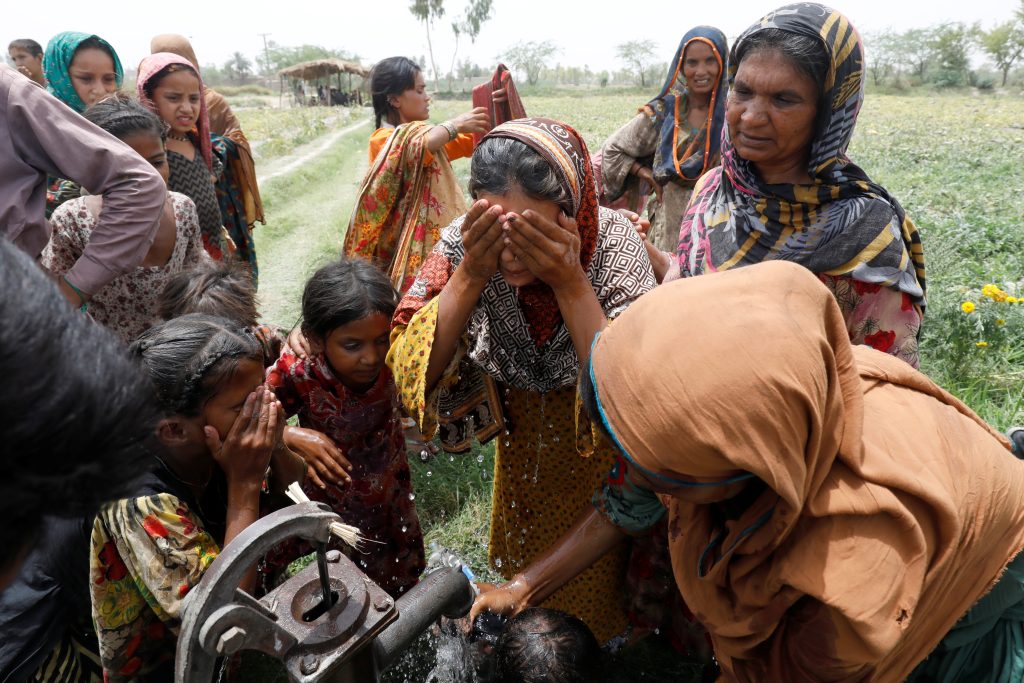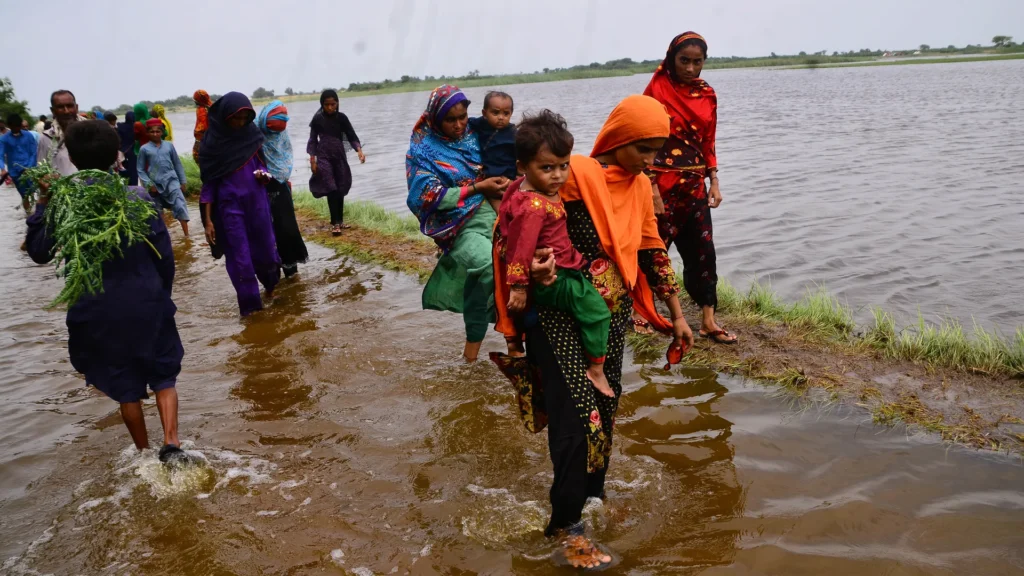
Elevating Women’s Power: Promoting Gender Equality in Climate Action
Introduction:
Gender inequality and climate change are two pressing global issues that demand urgent attention. It is widely acknowledged that climate change disproportionately affects women and exacerbates existing gender disparities in various aspects of life. Therefore, it is crucial to address the intersectionality between gender equality and climate action. This essay aims to explore the importance of promoting gender equality in climate action as well as the potential benefits it can bring. By examining the existing barriers and challenges faced by women in climate-related fields, we can identify strategies and policies aimed at empowering women and ensuring their meaningful participation in combating climate change.
- The impacts of climate change on women:
Climate change affects men and women differently due to existing gender roles, discriminatory policies, and socioeconomic disparities. Women, particularly those in developing countries, often bear the brunt of climate change impacts. They are more vulnerable to natural disasters, food and water scarcity, displacement, and the loss of livelihoods. Gender inequality exacerbates these vulnerabilities and limits women’s access to resources, education, and decision-making processes. Consequently, women’s voices and experiences are vital in devising effective climate change mitigation and adaptation strategies.
- The role of women in climate action:
Women play a crucial role in climate action as agents of change, innovators, and community leaders. They possess valuable knowledge of local ecosystems, possess skills in sustainable agriculture and resource management, and demonstrate resilience in the face of environmental challenges. Empowering women and amplifying their participation in climate-related fields contribute to more equitable and efficient climate policies and initiatives. Additionally, studies have shown that projects involving women are more likely to succeed and have a lasting impact. Thus, fostering women’s leadership and involvement in climate action is a win-win scenario. - Barriers and challenges faced by women
Despite their potential and demonstrated capabilities, women face numerous barriers and challenges in participating in climate-related fields. These barriers include limited access to education, discriminatory cultural norms, lack of representation in decision-making processes, and insufficient financial resources. Gender bias and stereotypes often lead to the undervaluation of women’s contributions and inhibit their full participation in climate action. Addressing these barriers requires comprehensive approaches that address institutional, cultural, and societal changes. It is crucial to challenge patriarchal systems and ensure women’s equal rights, access to resources, and opportunities for skill development. - Strategies for promoting gender equality in climate action:
To ensure gender equality in climate action, various strategies can be implemented at global, national, and local levels. Firstly, policymakers should mainstream gender into climate policies, ensuring that these policies are gender-responsive and address the specific needs and experiences of women. This includes incorporating a gender perspective and balancing gender representation in decision-making processes at all levels. Secondly, efforts should be made to enhance women’s access to education, training, and resources, enabling them to actively contribute to climate action. Investing in women’s leadership through mentorship, capacity building programs, and scholarships can amplify their voices and ensure their inclusion in climate-related fields. Additionally, promoting women’s entrepreneurship and providing access to financial resources can help women develop sustainable and climate-friendly businesses.

Conclusion
Promoting gender equality in climate action is not only a matter of justice and human rights but also a strategic approach for effective climate change mitigation and adaptation. Women’s empowerment and participation bring diverse perspectives and expertise, leading to inclusive and solutions-oriented approaches. Gender-responsive climate policies can address the disproportionate impacts of climate change on women and ensure their meaningful involvement in decision-making processes. By elevating women’s power in climate action, we can foster more resilient and sustainable societies that prioritize social justice and equality. Therefore, it is imperative for governments, stakeholders, and civil society to work together to dismantle barriers, overcome challenges, and create an environment that promotes gender equality in climate action.
All Categories
- Agricultural Methods
- Agriculture and Women Small Farmers Rights Awareness
- Climate Change
- Disable and Human Rights
- Disable Jobs
- Donation
- Education
- Health Issues
- Organic Foods
- Organic Vegetables
- Orphans Children
- Plastic production and disposal
- Services
- Sinking in Scarcity
- Success Stories
- Uncategorized
- Waste Management
- Women Rights
- Youth Empowerment




